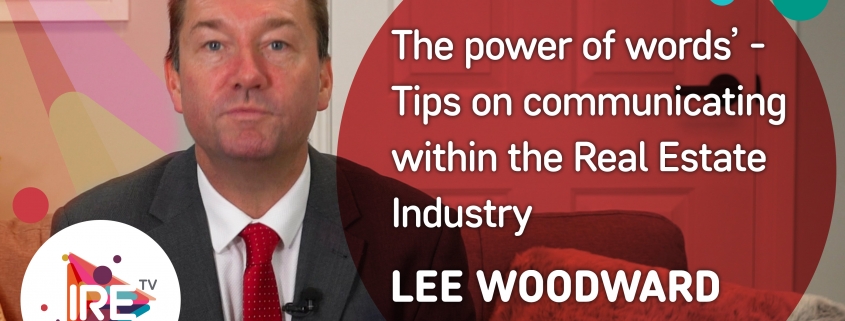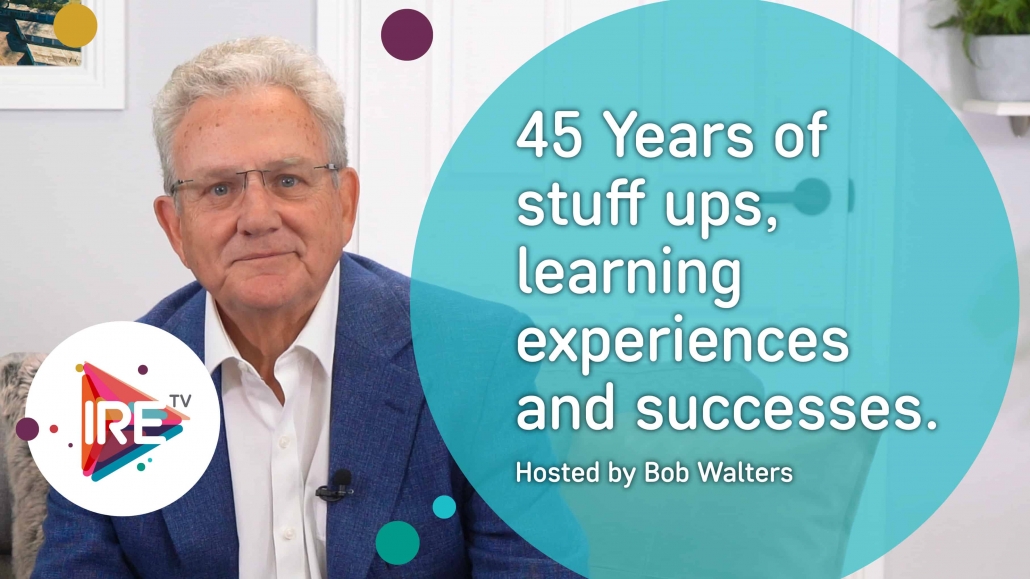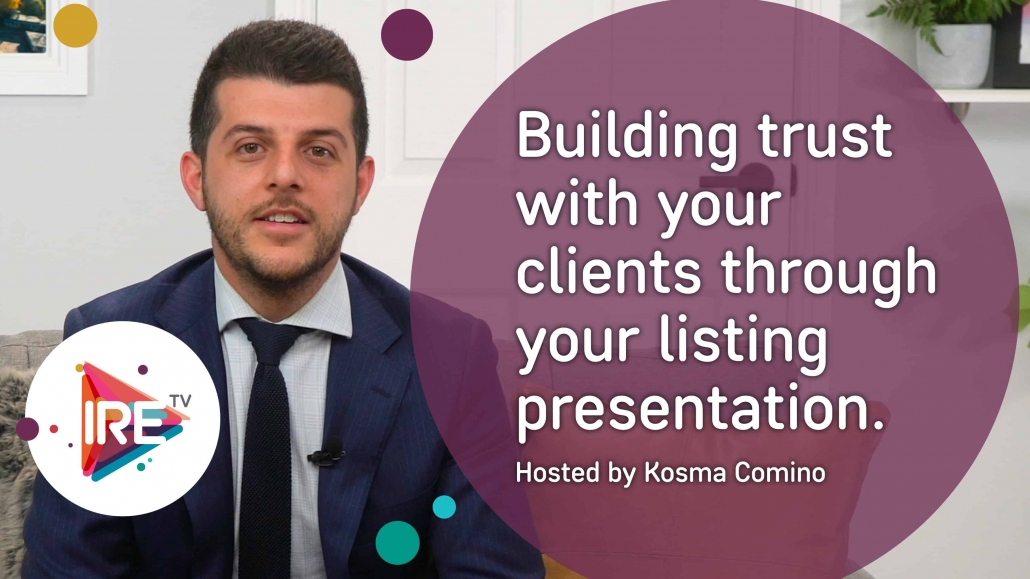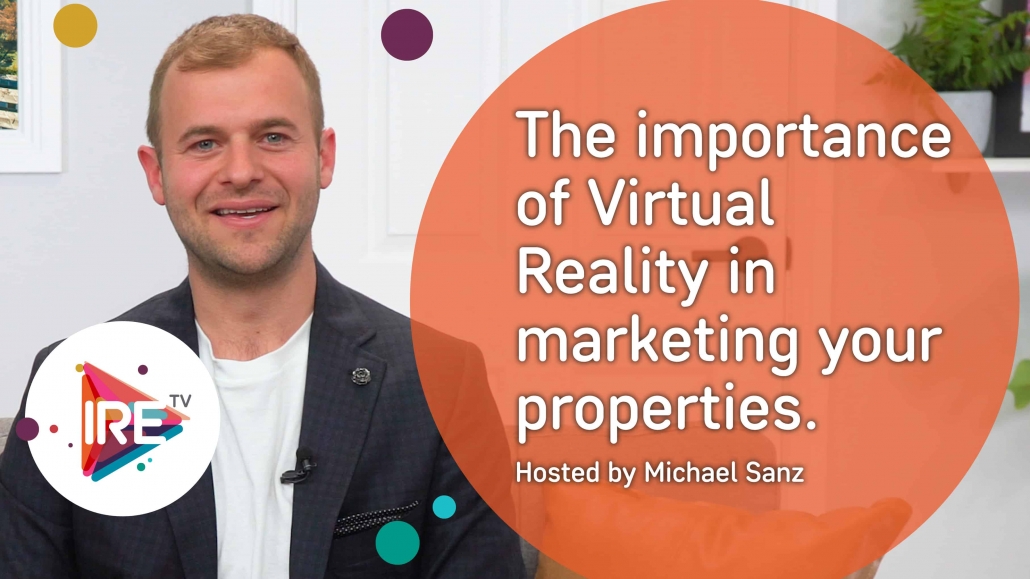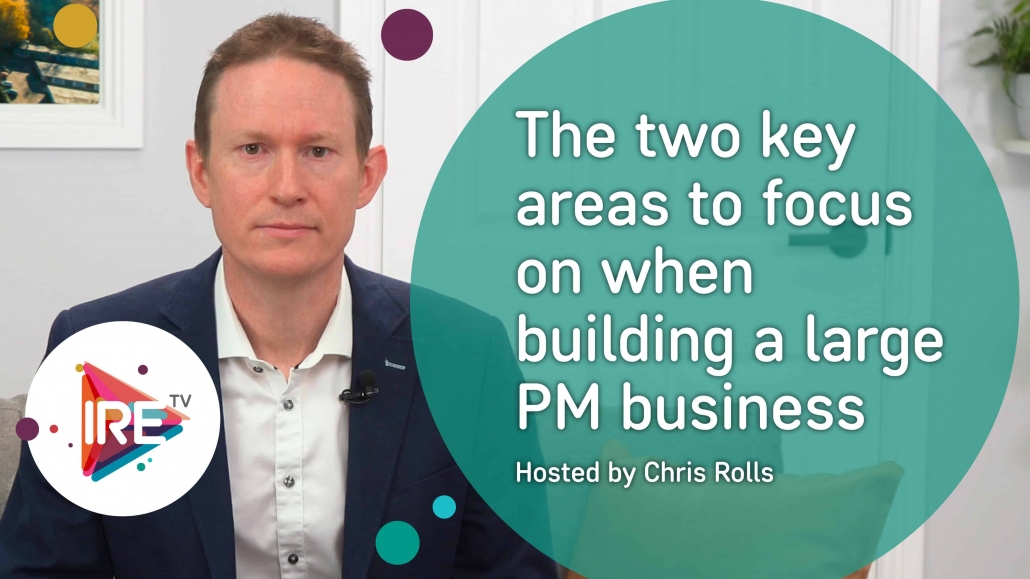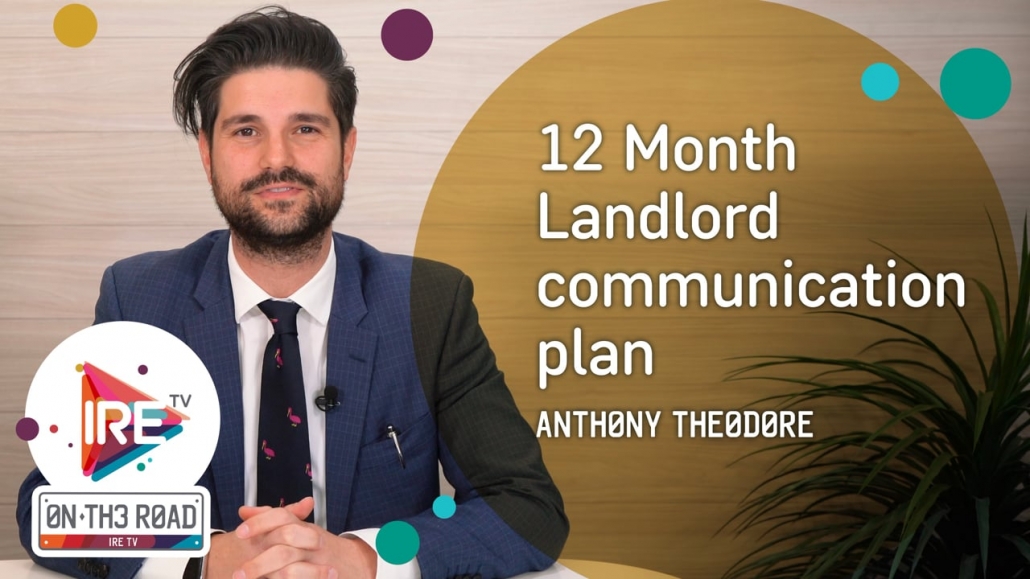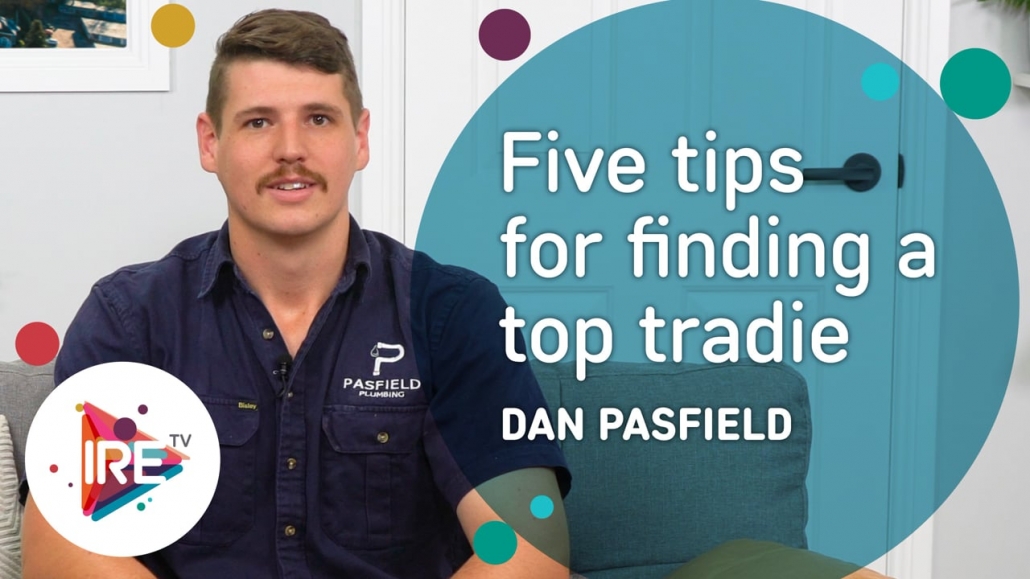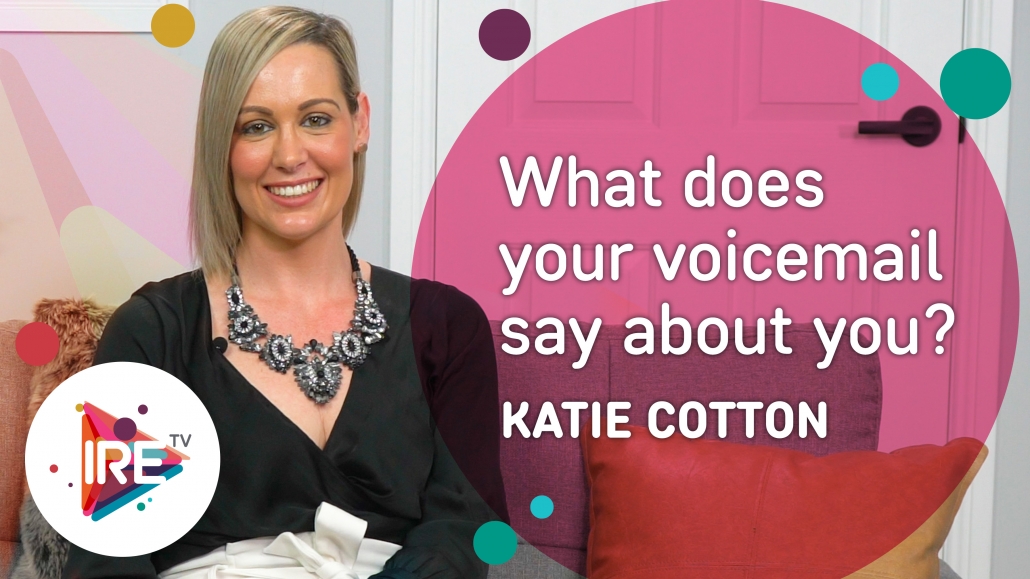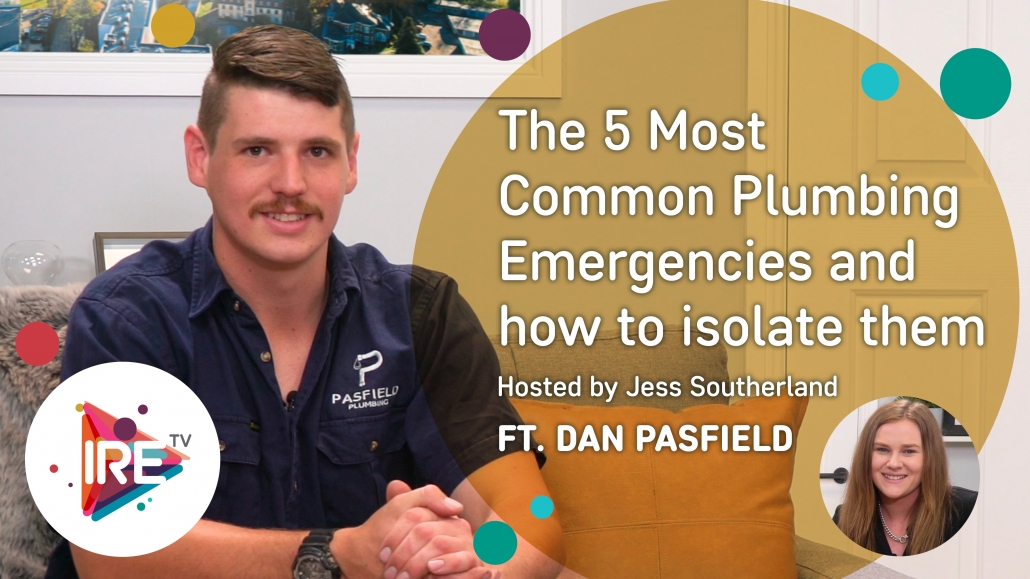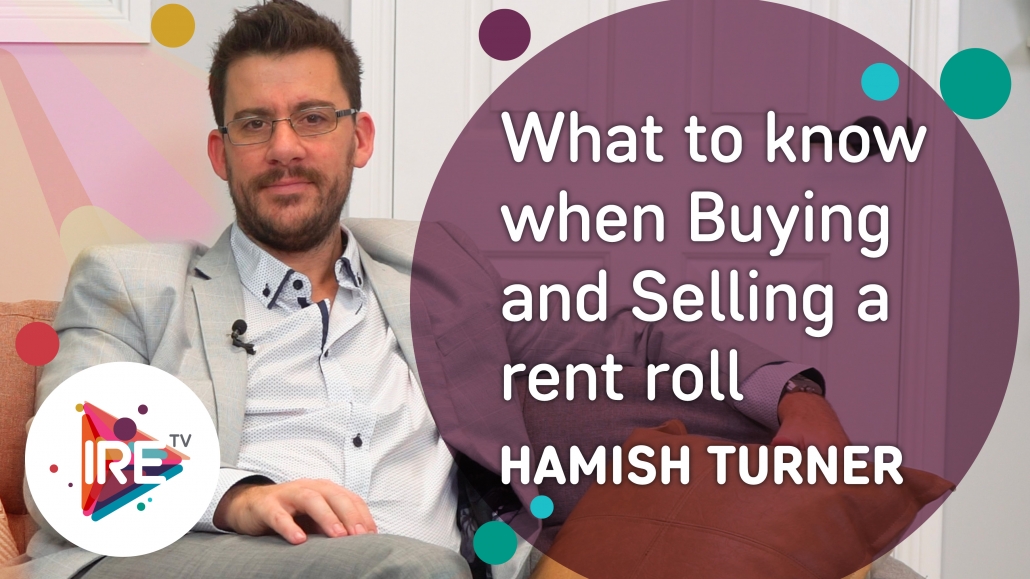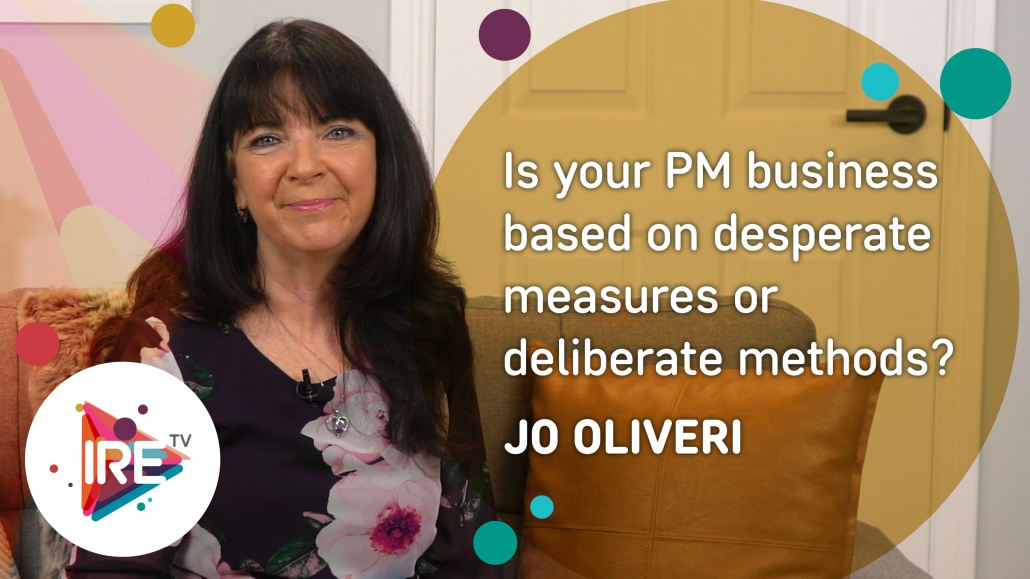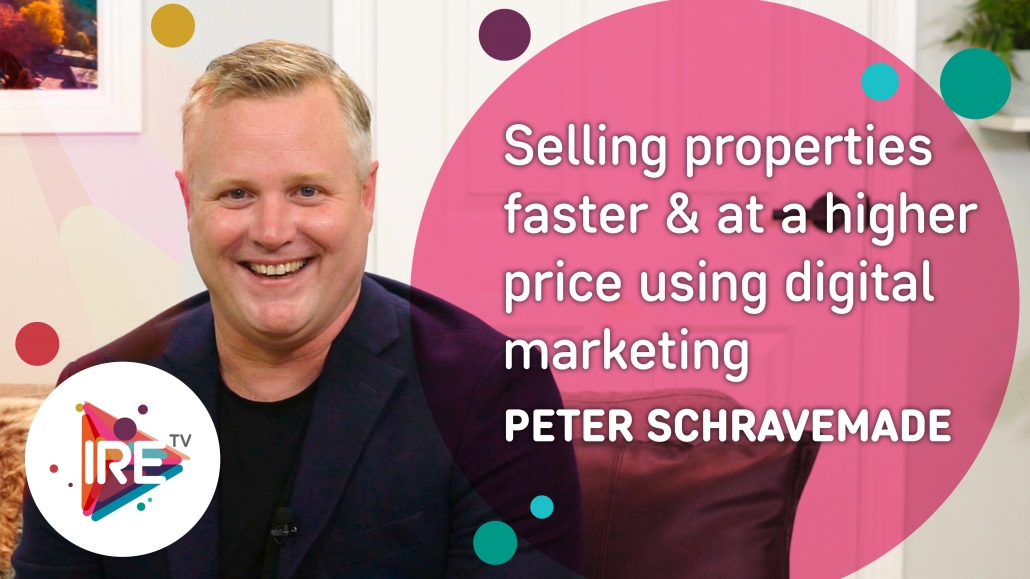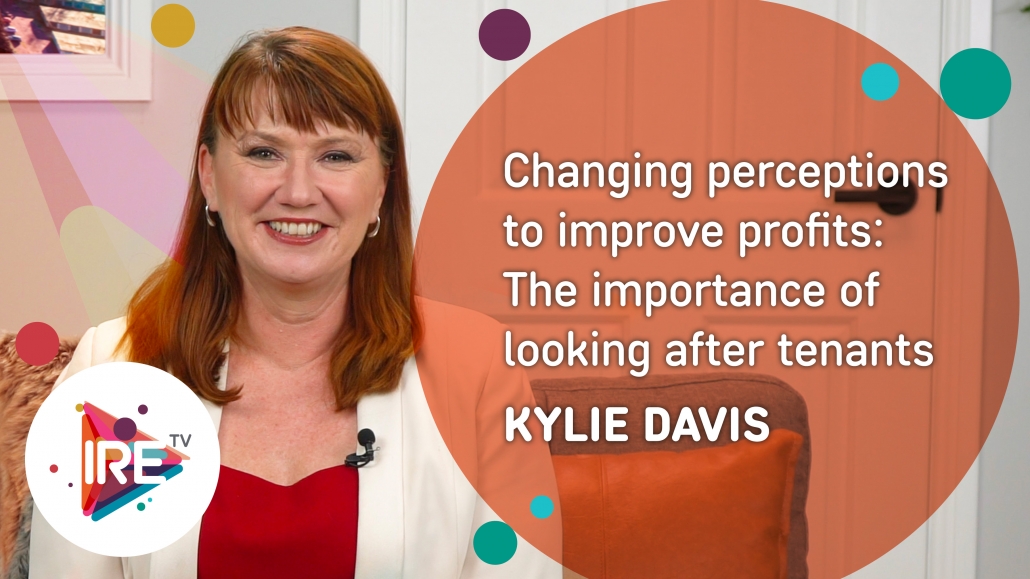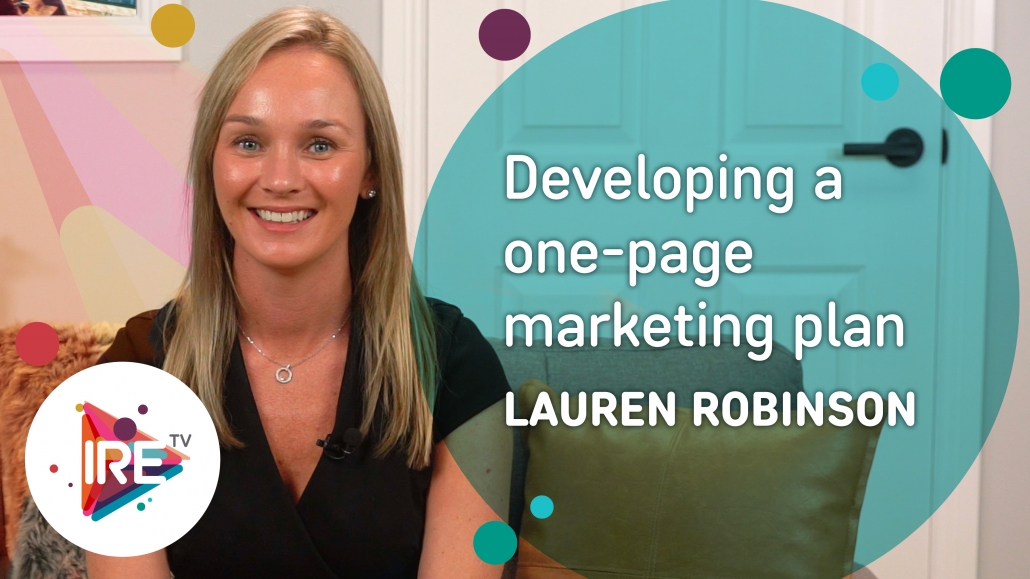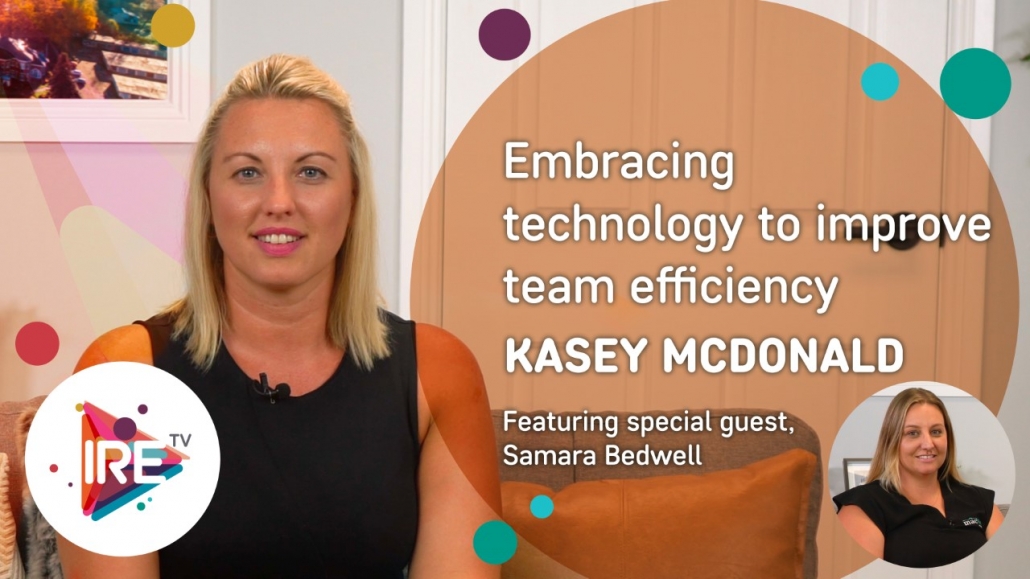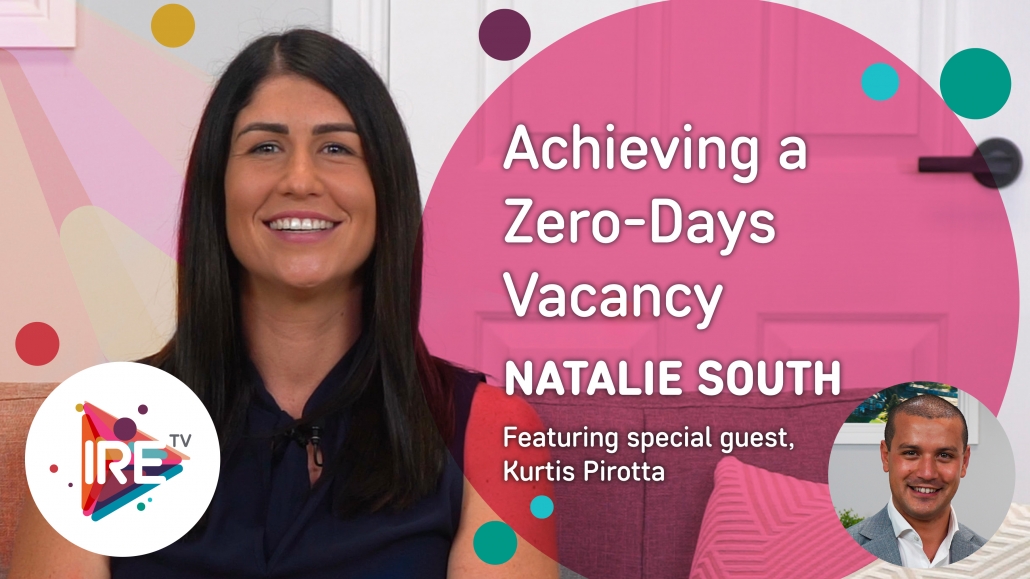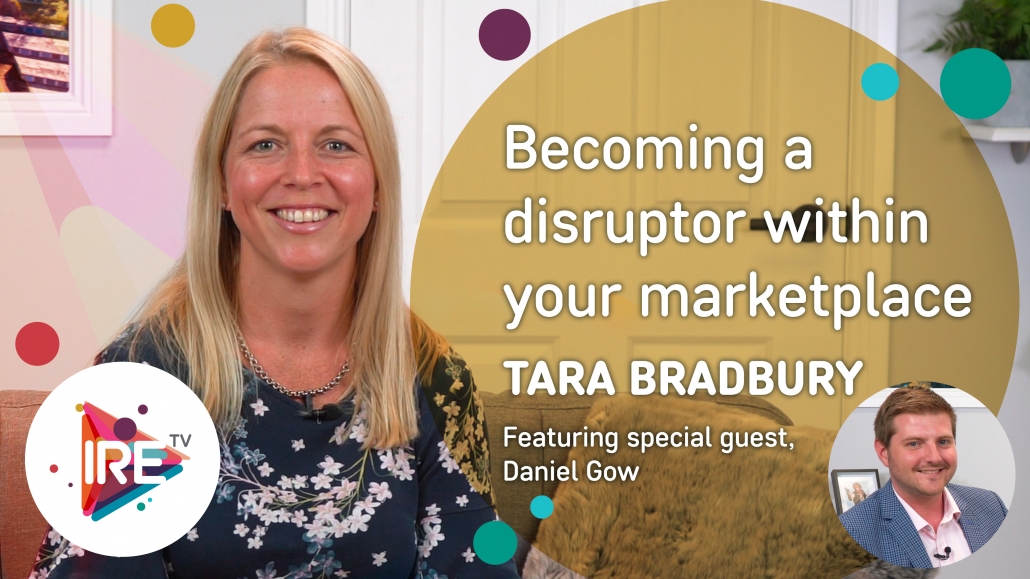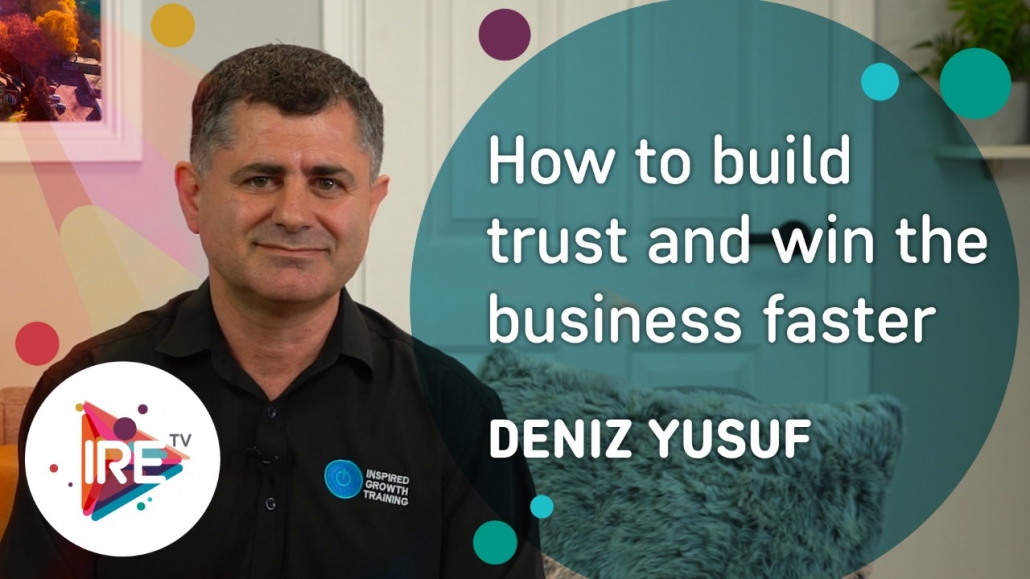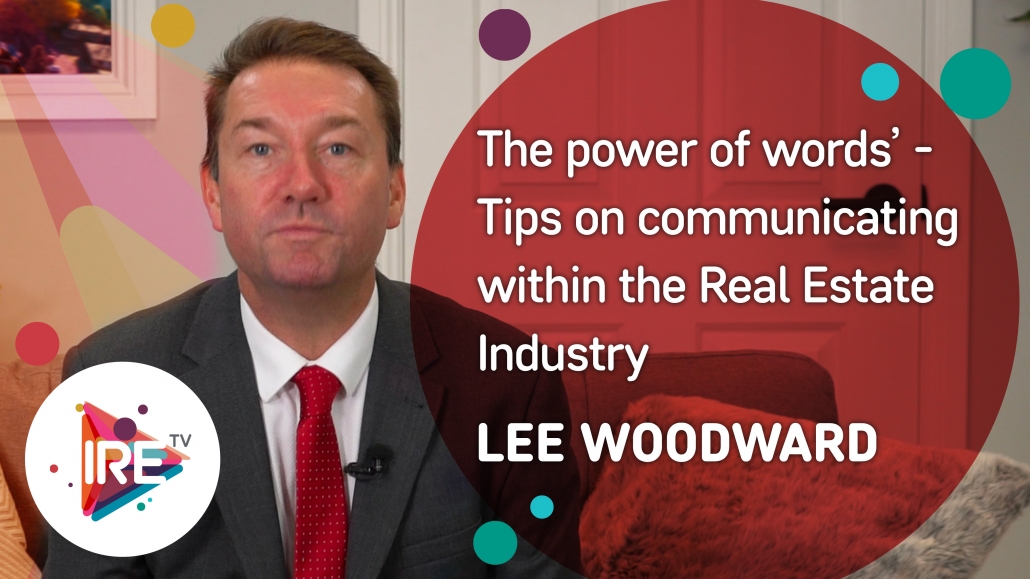Lee Woodward – The power of words
Future Presenters
Past Presenters
Become a presenter
Transcript
– Hi, my name’s Lee Woodward
and welcome to IRE TV.
Today I wanna chat with you about words.
Now, words are a module all
their own in communication.
As a lot of you know, I’m
from the sales industry,
but in the last five years,
I spend an enormous amount
of time on words with the
property management industry.
That’s because sometimes a
property manager may use words
that could be a little bit sharp,
and that sharp word gets a reaction,
or they don’t use it in a sequence.
Now a sequence of words is perfect
when you are trying to get
the rent at the right price,
and just ringing the owner, landlord,
to say, ‘We need to reduce the price,’
isn’t a good strategy.
They’ll resist that, I should’ve
gone with the other agent,
you’ll get kickback, and
how many times do you wanna
hit that brick wall rather
than using some technique?
Now, be it sales or property management,
the best way to do any
sort of rent reduction
or price reduction,
and the only difference
between sales and rental is
not so much the percentage,
but a true price reduction
in real estate sales
could be $40,000,
otherwise that’s looked at
as a trim, not a full cut,
and where in a rent reduction,
that could be 15, 20, 30 dollars,
depending on how you get the response
you’re getting from the owner.
But if we look at the words we use
and the staging of the words,
there’s a bit of technique to it.
So for example, if I was to
call you now as my landlord
and say, ‘Hi Peter, it’s Lee
from Inspect Real Estate.
‘I’m just calling you about the rent,
‘and the response we’ve had
from the tenant community.’
‘What about my rent?’
‘Well right now, I don’t wanna reduce it.
‘I wanna leave it where
it is for another week.
‘I’ve got another couple of people
‘that I still think
I’ve got a chance with.
‘Now a lot of the others have not opted
‘to put in an application
or go any further,
‘but that’s okay, that’s my
job to get every last dollar
‘I can out of the marketplace,
‘but what I’ll be doing next week
‘is looking for our next audience,
‘meaning, when they go
onto the sites right now
‘and they place in what
they can afford to pay
‘or they’ve got their
own idea of what it is,
‘we’re missing our next audience.
‘So I’m just calling you to say
‘I don’t wanna reduce it today,
‘but next Tuesday, our
next price would be.’
And when you say, ‘next,’ they understand
that’s the next step, it’s the next price,
it’s what the result is.
But by saying you don’t
wanna reduce it now,
they love you for it,
’cause the owner’s saying,
‘I don’t wanna reduce it now.’
But you gotta do this in forecasting
at least a week or two in advance.
So as you are working a property,
even dire as that, okay, we’re here now,
but that’s gotta be
reduced on the fifteenth,
which means I’ve gotta make
the call on the seventh
and say, ‘I don’t wanna
reduce it right now,
‘but in one week’s time if I
haven’t landed that person,
‘we’re gonna go to our next audience
‘and our next price would be.’
Words make such a difference
in everything we communicate.
One thing I’ve learned over
the many, many years is
people dig into arrogance,
they give into courtesy.
And the courteous way of saying to someone
that I don’t need to do this
now, I’ll do it next week,
the owner also knows that you’re
prepared to sweat a little,
meaning get to work, it’s
your job to get me that rent,
so go and do that for the next week.
Don’t just tell me I
have to reduce it now.
And by the time they’ve
had that adjustment period
of seven days, and you were scheduled
to reduce on that day anyway,
with all your next advertising
and the new alerts that
you’re gonna send out,
the owner’s been part of the process,
and not fighting you over the process.
(pleasant music)
(upbeat music)
Hi, Lee Woodward back here again
with my second tip of this segment.
It’s amazing when we talk about words,
there’s the words we use, and then
how we deliver those words.
So for example, there’s a great technique
in speaking called pause talking.
So I’m gonna talk to you
now, and I’m gonna pause
on a word that means nothing.
And if I pause long enough, you may think
I’ve even asked you a question.
However, when I’m trying
to deliver something
that’s serious, I can then
start the information quite nice.
‘And I’m just calling to
tell you about, however,
‘for your own benefit, if
we don’t receive that rent
‘by the fifteenth, I’m not
gonna be able to protect you
‘with what happens, and I
really like you in the property,
‘we’ve got on well,
but this must be paid.’
And it’s the pausing around that word
that brings in the intention.
But you never wanna threaten anyone.
So I know in the sales environment,
quite often we’ll get this
constant objection about fees.
‘Everyone’s the same, and why
would I go with you guys?’
Yet, if I was to spin that
around with words and pausing,
I could say, ‘I can
appreciate you thinking
‘we’re all the same.
‘But that’s like me saying to you
‘all schoolteachers are the same.
‘Would you believe a
really good schoolteacher
‘would have a significant impact
‘on the education of your children?
‘Well I feel that the right agent
‘has a huge impact on
the profit you receive
‘on the sale of your property.
‘And by the way, I’m not asking you
‘for any money this evening,
‘just the opportunity to
show you what I can do.
‘I go to work, I get my
whole team to work on it,
‘we invest our time and money,
‘and if I don’t get the
result you’re happy with,
‘you pay me nothing, ’cause we are paid
‘on a performance fee, and
I can’t be fairer than that.
‘So when you sell a property,
‘we’re part of your
profits, not expenses.’
And that time to be serious,
when you’re doing words,
is when you wanna emphasize a point.
So when you look at a
tenant who hasn’t paid rent,
or you’ve got a landlord saying,
‘Another agent rang me
today and they’ve offered me
‘four weeks of free
rent and a cheaper rate
‘than you into the future.’
Pause when you get that.
And then ask a question.
And remember, questions get
answers, statements get judged.
You can say you’re better
than them and this is why,
and go into your full flight mode.
Or, you could just say,
‘John, I appreciate
‘you bringing this to my attention.
‘That sounds like a good offer.
‘Is there any reason why
you haven’t appointed them
‘at this point?’
Now, the answer to this
is gonna be your trigger
to go into the next direction.
And then they say, ‘Well,
I really like you guys,
‘you’ve done a good job until now.’
‘Well, we do a good job
because we do everything we can
‘and we take no shortcuts,
and we don’t definitely
‘take a shortcut by offering a lesser rate
‘for a service we won’t
be able to provide.
‘And I fully respect you
bringing this to my attention,
‘it’s a good offer, perceived good offer,
‘but I can assure you there’s
no shortcuts to a great tenant
‘and I could never protect
you against damages
‘of a bad tenant who was let
in by someone taking shortcuts.
‘So John, the decision is
yours, but I can assure you
‘you have our attention,
and we will do everything
‘to protect the asset, not just land,
‘a cheap tenant at a cheap rate.
‘You wouldn’t engage us for that.’
So as we go through this segment,
it’s the pausing that allows the air,
the breathing space, and sometimes,
you gotta ask a question,
and not all-out respond to their answer.
Let them respond.
If it’s a great objection on their part,
just say, ‘Look, I really
appreciate you bringing this up.
‘Could you just run that by me again
‘so I clearly understand it?’
And quite often the second
time of them saying it
doesn’t sound as good anyway.
So use pausing when you need to be firm.
It’s okay to go into that voice,
but you are of concern to them
that I can’t protect you any further
if you don’t take my guidance.
I’m here to advise you,
you’re one of our tenants,
and yes, the owner is
one of our landlords,
but this must be paid.
(pleasant music)
(upbeat music)
Now that we’ve discussed
words in many different ways,
let’s just have a look at the formula
for overcoming objections.
A lot of people think they
need to know every answer,
script and dialogue and response,
and I think those days are over.
Our consumer has changed,
and you having some sharp,
robotic response doesn’t
work in your favor.
Even when we’re teaching words now,
we don’t use the words
scripts and dialogues.
We use the words and concepts
that make it all make sense.
So instead of trying to
remember every single objection,
which you can’t do, what you
can do is remember the formula,
and there’s four steps to the formula.
Number one: whatever they bring up,
just welcome it onboard.
‘Thank you for bringing
this to my attention.
‘Thank you for bringing that up.
‘This is great, you’re reaching out
‘to mention this to us now.’
If you welcome the objection onboard,
they’re seeing they’re not rattling you,
whereas if you fight back straightaway,
they’re like, ‘Ah, he didn’t
handle that too well.’
So just stay calm, breathe.
No matter what it is, just
welcome that objection onboard.
So let’s take an example
of a fee objection.
So they may say, “Lee,
we’ve interviewed you
‘and five other property managers,
‘and we’ve been offered far
better rates than yours.
‘Are you prepared to match their rates?’
‘Firstly, thank you for bringing this up,
‘and even bringing it to our attention.
‘You must be close to making the decision
‘to go ahead with us.
‘Otherwise you wouldn’t question,
‘you just would’ve gone
with those companies.
‘Can I ask you, is there any reason
‘why you haven’t appointed them?’
So I’ve welcomed the objection
onboard and so forth.
Step two of the formula is to confirm
what it is they are saying.
‘So John and Helen, just so I’m clear,
‘you feel right now if you
went with this cheaper rate
‘that you’re saving money each week,
‘and in the long run,
there’ll be more money
‘left in your pocket as
part of your investment.
‘Is that what you’re thinking?’
‘Yes it is.’
It’s really important in step two
that they understand you understand
what they’re trying to say
and they have been heard.
So welcome onboard, step one.
Step two, confirm what
it is they are saying.
Step three is different.
‘I can understand you thinking that.
‘I’ve had a lot of clients
who have assessed my service
‘against the competition.
‘This happens to me every day.
‘But we’ve now got 850 people
‘who’ve entrusted our company
with their investment,
‘whereas quite often, the lower fee rates
‘and the cheaper offerings are people
‘who are trying to build,
and do whatever they can
‘to get to that level.
‘The reason they’re not at that level
‘is the infrastructure, the
technology, the booking systems.
‘Everything we have is an
organizational approach.
‘You can’t shortcut that,
and if you go out there
‘and offer these large fees, or low fees
‘to large audiences, you’ll get volume,
‘but you can’t deliver on the service.
‘That’s probably the reason I’ve chosen
‘to work at this company
myself: its standards.
‘I don’t wanna work in any
company that takes shortcuts.
‘But I can understand your feelings
‘as an investor about there’s
a potential of saving money.
‘There is no shortcuts to
a great tenant or property.
‘There is a methodical amount of steps
‘and a lot of people that need
‘to have one eye on the future
to protect the investment.
‘But what I can offer
you is our dedication,
‘and like everyone
that’s made that decision
‘to go ahead with us, they
feel their asset is protected,
‘no different than taking the insurance,
‘no different than insurance
on your own personal home.
‘You wanna know you’re covered.
‘And I think that’s what we offer you,
‘but you are the boss.
‘You are the person
engaging, and we’d love
‘to be the person that
represents you long-term,
‘not just for this property,
‘but for your family and portfolio.
‘But if you perceive there’s a discount
‘on someone doing that
that is a short-term gain,
‘I can’t stop you from doing it,
‘but I’ve got many investors
who’ve regretted that decision
‘and have come back to a
professional service end-to-end.’
So the last part of the
formula is to send it back
as the example and the reason,
but always give them the courtesy
that it’s your choice, it’s up to you,
should you decide to go.
Now the word should is a control word
that should you decide to engage them,
which means they have the control,
versus when you decide to engage us,
that’s that arrogance, and
people dig into arrogance,
they give into courtesy.
So it’s a four-step formula,
but always welcome it onboard
and calm down the situation.
And by the way, final tip
within the tip I’m giving:
it’s quite okay to say, ‘No,
that wouldn’t be possible
‘for us, is there any other
questions you may have?’
Not every objection is an objection.
It’s just a question.
So for example, the real estate industry
is driving the signals
into the marketplace
that you can get people cheaper.
So when people say,
“Would you go for less?’
‘No, that’s our fee for
service and the tools of trade
‘we need to do the job properly.
‘Do you have any other
questions that I can answer?’
And move straight off it.
Not every objection is an objection.
It could be just a question.
I’m Lee Woodward.
If you haven’t seen us before,
I’m from the Real Estate Academy, and we
do property management training
and sales, and we also run
the Real Estate Hot Topics:
Property Management audio,
which you may have received as a gift
at some point from Inspect Real Estate.
Thank you for joining us,
and good luck for the future.

